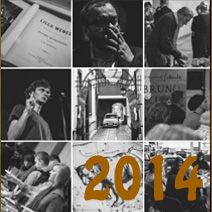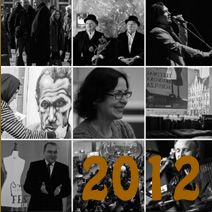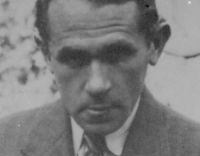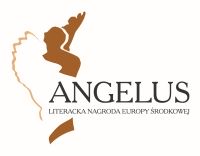The sixth day of Bruno Schulz. Festival had four main characters: Stanisław Barańczak, whose works were discussed on the science session, Emil Cioran and Henryk Krzeczowski, who was the topic of panel discussions, and Varujan Vosganian – Angelus 2016 laureate.
The “Nieoznaczoności Barańczaka” science session’s last day was focused on poet’s translation works – and talked about it among others Magdalena Heydel (about translation rationality) and Maciej Skrzpecki (about translations absurd poetry)

Today also, the last discussions in Ossolineum have taken place. Firstly, about Emil Corian talked his Polish translators: Ireneusz Kania and Marek Bieńczyk, but also a French corianolog, Nicolas Cavaillès. The story about this Romanian philosopher and essayist began with analysis of the most important turning point of his life: moving from Romania to France and change of the language he written in. Born in 1911, Corian led a typical life of an intelligentsia child: he finished high school, later studied philosophy in Bucharest and Berlin, finally moved to Paris, in order to make a Ph.D (but instead, he was riding a bike – what was recognized anyway as a great way to study philosophy by his professors). In Paris, he settled down permanently. As for his private life, not much happened (only worth mentioning is that he studied on Sorbonne to his 40’s – and probably he would have done longer if not the changes in regulations at the University); the most important thing was writing.

Corian’s works in Romanian are full of passion, rapid, licentious – reading these early works, we feel that the author was overfilled with anger. The philosopher broke up with the language and the hitherto formula at the end of 30’s. Since 1949, he was writing only in French. So to say, he was born again: Change of the language meant also a transformation of himself and his personality on different levels. A different language opened a new world in front of him, forced to formulate thoughts differently. Meant also a turn towards melancholy. Emil Corian remained a man of “great denial” denying human condition as such, world and its conditioning. This very negation and “thinking against himself”, and a kind Corian’s of peculiar “looseness” attracted to him participants of the today’s meeting.

An unreachable figure is also Henryk Krzeczowski, the main topic of the panel discussion with an enigmatic title “W poszukiwaniu Henryka” (“In search of Henryk” – rag translate), in which took part a writer and critic Wojciech Karpiński, literature historian and editor Andrzej Stanisław Kowalczyk and literature and culture historian Paweł Rodak. And who was Henryk Krzeczowski? He is one of the most important characters in Polish humanities, belonging to the ones working on the great Polish history from the 80’s and 90’s. And still he is almost forgotten. Most certainly in some extent because he hid his own past, giving new end new interpretations of it, realized the “life under cover” scenario. What is known about him for sure, is the fact that he was born in a Jewish family as Herman Gerner, during war he stayed in the USSR (where he married the mother of Anna German), later he worked in the communist intelligence. When he left army in the late 50’s, he sacrificed himself to literature: essay writing and translating (however he did not graduated from any university, he perfectly knew a few languages). And became a influence for many Warsaw intellectuals.

A pretext for the meeting became Wojecich Karpiński’s book, published this year: “Henryk”. The author tried to understand its main character for thirty years. A man, who written just a little, but inspired others, extracted what was stuck in them – mostly by conversation. The effect of these attempts to recognize and understand is precisely the book “Henryk”, being a searching, recreating and modifying of the Krzeczowski’s diary, found after his death. A diary completely different from every other, since its author did not write about external experiences; the diary is a document providing information about internal dilemmas and identity problems of the author. It is not a normal record of life – it is a part of it. And maybe reading this diary, through Wojciech Karpiński’s book will allow us to get closer to the figure of Henryk Krzeczowski.

In the evening on a solemn gala, we got to know the laureate of the Angelus award, granted in the sphere of prose works, translated to Polish. Announcement of the winner preceded a musically- verbal spectacle directed by Tomasz Man with the participation of actors from the music theatre Capitol, prepared on the base of fragments from the nominated books. A double winner was a Romanian writer with Armenian roots Varujan Vosganian. At first, he received the Natalia Gorbaniewska prize for the book “Księga szeptów”, awarded for the third time now in the reader’s plebiscite. And a while later it turned out that Angelus 2016 also goes to his hands. During speech, Varujan Vosganian told, that humanity will not be cured with politics or history, but through culture, being a tribute for humanity and the only tool, which wins without defeated. The translator’s prize went to Joanna Kornaś-Warwas, who translated the winning book.
Ewa Dąbrowska translated by Stanisław Borys
fot. Max Pflegel Max frames / Wydawnictwo EMG





